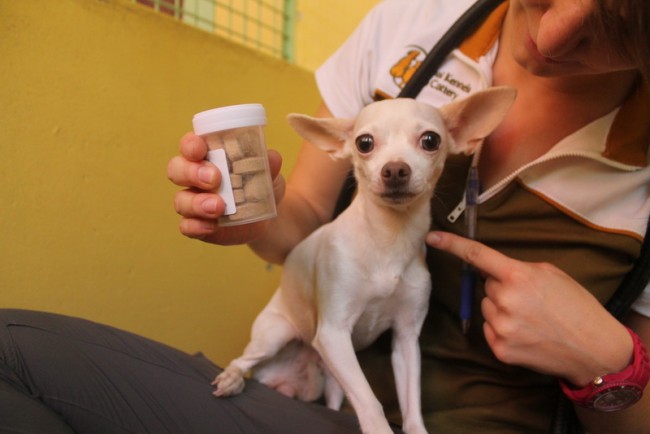and Dubai International Airport
and Dubai International Airport

We've heard your howls for more on Pooches & Poisons (that was you, wasn't it?). So, trotting hot on the heels of what NOT to feed Fido (it's a looooong foodie no-no list), here's the promised Final Episode... and your Degree in Toxicology (no, not really).
Carbon Monoxide Poisoning: CO2 is not something we consider dangerous to dogs as we think carbon monoxide = cars and garages = places canines don't necessarily hang out. But it's a potential danger lurking there, and elsewhere - kerosene or propane heaters and gas engines, heaters and cookers. While large doses of CO2 are deadly to humans, dogs are even more susceptible - a medium-sized dog can be in danger within ten minutes of exposure to the gas if they're in an enclosed space.
Antifreeze: Antifreeze lowers the freezing point of a water-based liquid; used in internal combustion engines and other heat-transfer applications, such as HVAC chillers and solar water heaters, it's deadly to dogs. The main danger of antifreeze is that dogs seem to like the taste, yet even a small amount (i.e. a teaspoon) can result in the unthinkable.
Rodent Bait (Rodenticides): Using bait to lure rats and mice to their demise can be hazardous to dogs (and anything else for that matter). Rodents are hardy little creatures, so the ingredients used to fell them are pretty damn toxic. One of the most common active ingredients found in rodent bait is called bromethalin, and if it's ingested by your dog it can cause internal bleeding, brain swelling and kidney failure. The danger of rodenticides being used in a community is that the poisoned rats and mice are toxic to your pet when ingested, so even if your pet ingests the poison indirectly (i.e. by eating one of these rodents), real problems can arise. We've written on awareness around municipal toxins and personal pesticide safety here.
Insecticides and Pesticides (including Slug Bait): And speaking of pesticides... they are also hazardous (things that kill other things do tend to be), especially ones that contain organophosphates (like disulfoton, which is sometimes put into rose-care products). Use with caution and investigate going "green'' when keeping your greens pest-free.
Anti-Tick and Flea Products: This is an interesting one: stuff we actually use on our pets may also be poisonous to our pooches. Many of these products contain potent pesticides, including permethrin, which also is used for pest-control on crops and flowers. So, what to do? Read the label of your anti-tick and flea products, do some research, or ask your vet for guidance.
People Medications: Would you give your bestest beloved doggie your own human medication if he was feeling rough? No, we didn't think so. Different strokes for different species. Amounts differ, drugs differ, treatments differ... dogs differ. You get the picture. Fido deserves his own medicine cabinet. And speaking of medicine cabinets, that's where all medication belongs.
Dog Medications: Overdosing (by their own paw) is more common with dogs and their own meds that you might think. Don't allow your doggie access to any of its treatments - even the ones they hate to take may suddenly seem appealing once your back is turned.
Party Paraphernalia: When letting your hair down, wagging your own tail and having a bit of a party, sweets wrappers, popped balloons, costumes, candles, etc. can be left lying around. Consider these things dangerous to your dog. Don't let any of it go to the dogs tonight, ok?
In closing our last chapter on Pooches & Poisons, here are some of the most common symptoms of toxicosis in dogs:
Be safe and be aware - and for any canine conundrums, your vet's always there.
Office Coordinators -cum- Receptionists
Animal Relocations Officers

